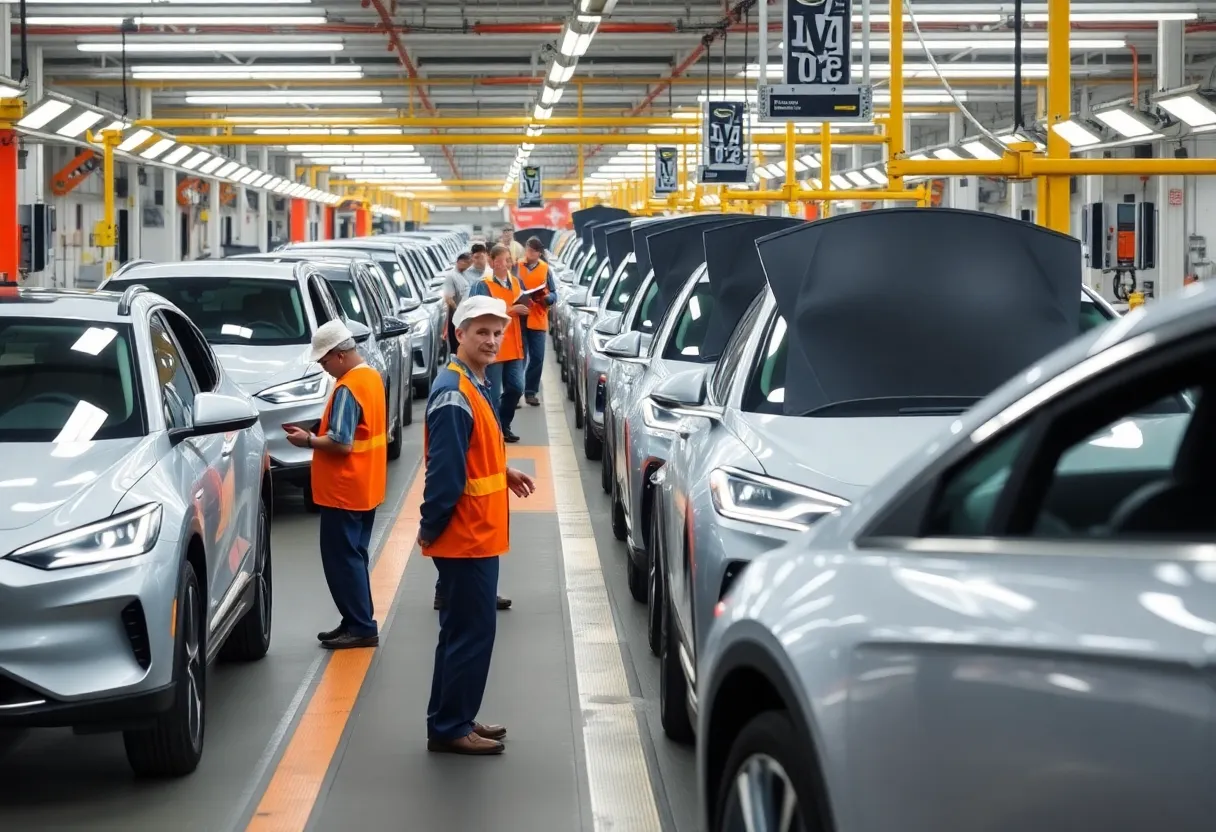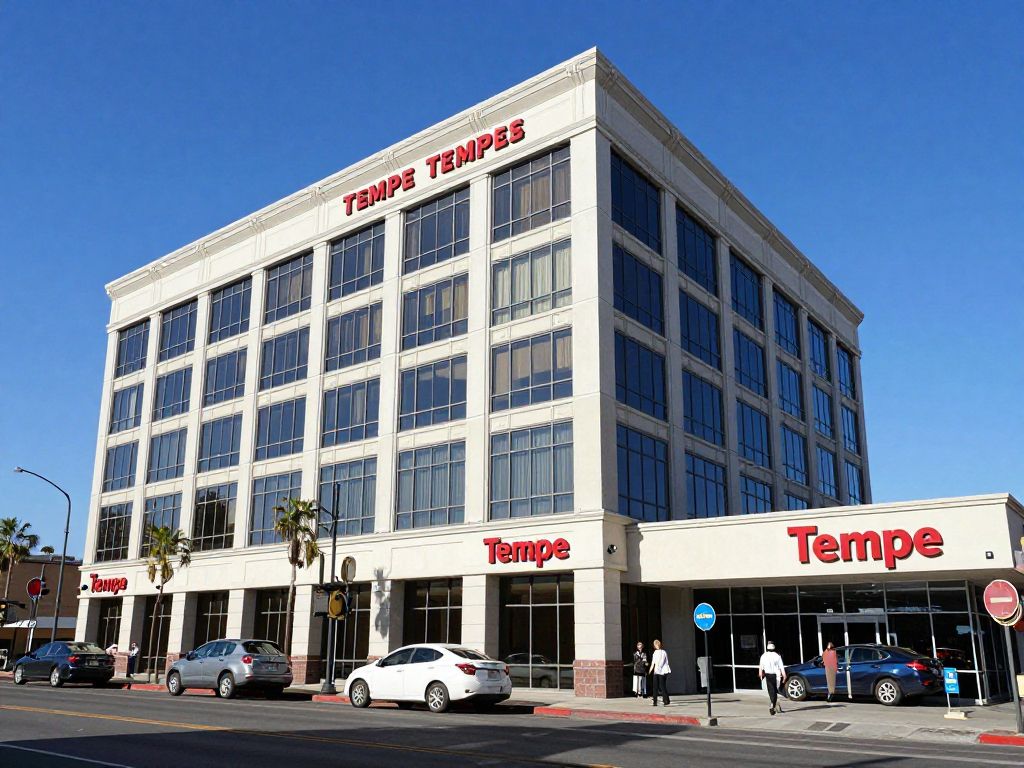News Summary
Arizona is becoming a pivotal hub for the automotive sector as Lucid Motors garners interest from major manufacturers seeking production alternatives due to rising tariffs. Companies like Stellantis, Volvo, and Mercedes are shifting toward domestic production, while Lucid benefits from its local manufacturing strategy. The demand for secondhand goods is also growing as consumers seek budget-friendly options amidst economic pressures. With the automotive landscape evolving, Arizona is in a prime position to attract more industry players and adapt to changing consumer behaviors.
Arizona has become a focal point in the automotive industry as Lucid Motors experiences a surge in interest from other car manufacturers seeking to mitigate the impact of recent tariffs imposed by the Trump administration. These tariffs, set at 25% on imported cars and auto parts, have prompted manufacturers to relocate their production to the United States to maintain cost efficiency.
Lucid Motors’ CEO, Marc Winterhoff, reported that several carmakers have approached the electric vehicle (EV) startup with inquiries about utilizing its Arizona factory as a logistical solution. The manufacturing capabilities of Lucid are attracting interest as companies strategize for a less capital-intensive production model within the U.S.
In response to these tariff pressures, major automotive companies, including Stellantis, Volvo, and Mercedes, have announced plans to ramp up vehicle production domestically. General Motors is particularly facing financial challenges, estimating a $5 billion loss due to tariffs, and is working to cut costs by increasing domestic production of vehicles and components.
Unlike other manufacturers, Tesla, Rivian, and Lucid have been relatively insulated from the impact of these tariffs, thanks to their local manufacturing strategies designed for the U.S. market. Lucid, notably, has recently expanded its production capacity by acquiring the manufacturing facilities of the bankrupt electric truck startup Nikola, which allows it to meet increased demand effectively.
Despite recent financial reports where Lucid’s first-quarter earnings fell below analyst expectations, the company remains focused on its production goals, aiming to deliver 20,000 vehicles by the end of the year despite the uncertainty surrounding tariffs.
Conversely, Rivian announced earnings that exceeded Wall Street expectations but faced challenges as it reduced its delivery guidance and acknowledged that tariffs would likely add a few thousand dollars in extra costs to each vehicle.
In addition to shifts within the automotive sector, the resale market in Arizona is also experiencing growth, as consumers look for ways to save amidst rising prices fueled by tariffs and inflation. Thrift shops, like the Assistance League of Phoenix, report increased foot traffic and heightened demand for secondhand items as more individuals opt for budget-friendly purchasing options.
Moreover, younger consumers, especially those from Generation Z, are playing a pivotal role in this trend, making up two-thirds of the anticipated market growth in secondhand shopping over the next five years. This demographic is keen on finding economically viable alternatives, which has led to a flourishing resale market.
Businesses in Arizona that depend on imported goods are expressing concerns about the potential for retaliatory tariffs, which could disrupt their trade relationships and compel customers to explore alternative suppliers. This environment creates uncertainty not only for automotive manufacturers but for various sectors reliant on imports across the region.
As the automotive industry continues to adapt and respond to the pressures of tariffs, Arizona is positioned as a significant player in this evolving landscape, attracting interest from major manufacturers while also witnessing shifts in consumer behavior towards more economical purchasing options.
Deeper Dive: News & Info About This Topic
- AZ Family: Tariffs and Arizona Thrift Stores
- AZ Central: Trump Administration’s Impact on Arizona
- Axios: Trump Tariffs and Arizona Businesses
- Fox 10 Phoenix: Trump Tariffs Impact on Arizona Businesses
- AP News: Trump Tariffs and Savings in Arizona
- Wikipedia: Tariffs in the United States
- Google Search: Arizona Automotive Industry
- Google Scholar: Trump Tariffs Impact on Businesses
- Encyclopedia Britannica: Tariff
- Google News: Arizona Tariffs Inflation

Author: STAFF HERE PHOENIX WRITER
The PHOENIX STAFF WRITER represents the experienced team at HEREPhoenix.com, your go-to source for actionable local news and information in Phoenix, Maricopa County, and beyond. Specializing in "news you can use," we cover essential topics like product reviews for personal and business needs, local business directories, politics, real estate trends, neighborhood insights, and state news affecting the area—with deep expertise drawn from years of dedicated reporting and strong community input, including local press releases and business updates. We deliver top reporting on high-value events such as the Waste Management Phoenix Open, Cactus League Spring Training, and Arizona State Fair. Our coverage extends to key organizations like the Greater Phoenix Chamber of Commerce and Visit Phoenix, plus leading businesses in technology and healthcare that power the local economy such as Intel and Banner Health. As part of the broader HERE network, including HERETucson.com, we provide comprehensive, credible insights into Arizona's dynamic landscape.





